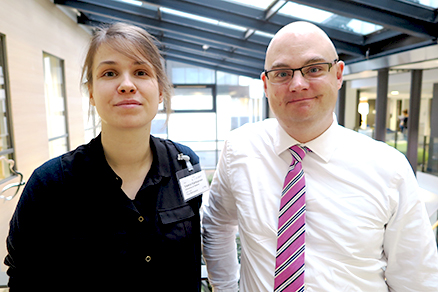“Our welfare should not be dependent on problem gamblers”
GamblingNanette-Marie Forsström /freelancejournalist/Outhouse Media, the article is translated by Semantix. Published 18 Dec 2017
In most societies, gambling industry profits are used to benefit the common good. But how great is the risk that non-profit associations and organisations will become addicted to gambling revenues? In the worst-case scenario, might organisations start advocating for gambling, in order to safeguard their incomes? “Our welfare must not be dependent on people's gambling behaviour,” argue researchers.
The many ways in which gambling revenues are channelled into civil society all involve various risks; but, hardly any research has been carried out that examines what the consequences of this practice might be. The trio of researchers, Michael Egerer, Veera Kankainen and Matilda Hellman of the Centre for Research on Addiction, Control, and Governance (CEACG) at the University of Helsinki have attempted to remedy this shortcoming.
They have interviewed more than 13 representatives of different Finnish social organisations on how they regard their financing system and the role of their funding bodies. The organisations are active in areas such as welfare, youth work, and sports.
“The organisations seem to be unaware of how many problems gambling can lead to. For example, they didn’t distinguish between the money they received from the more hazardous forms of slot machines and revenue from gambling games,” says Michael Egerer, a doctor of social science.
Do the ends justify the means?
Slot machine gambling is a major source of revenue for the Finnish State. Gambling revenues help to finance a large portion of its operations in the fields of sport, culture, science and social welfare. A common way in which people justify the state’s gambling monopoly is to point out that the money goes to a good cause, and that nationalisation allows greater control over the risks. But the question remains: to what extent do the ends justify the means?
Finns lose approximately two billion euros a year to the gambling company, Veikkau’s, various games. Research shows that a significant portion of this money originates from a small group of people. This small group is composed largely of poor people and mentally or physically ill people, who also suffer from other addictions. So says Pekka Sulkunen, a sociology professor at the University of Helsinki, who was interviewed by the Finnish newspaper, Helsingin Sanomat, in November 2017.
He claims that slot machines are the worst culprits because they are placed in everyday locations, such as stores and kiosks, and are therefore, virtually impossible to avoid. It is estimated that around 100,000 people in Finland suffer from gambling problems.
Awareness of the problems associated with slot machines has now reached the ministerial level. Minister of Social Affairs and Health Pirkko Mattila (of the Blue Reform party) and Minister of the Interior Paula Risikko (of the National Coalition Party) agree that new measures must be taken to remedy the gambling problem. For example, the ministers propose enacting stricter laws on where the slot machines may be placed. Only the number of slot machines is currently limited by law.
An unhealthy addiction
The researchers describe the funding system as an addictive spiral, where the players are addicted to gambling and the not-for-profit organisations are, in turn, addicted to the players’ losses.
Thus, Michael Egerer and Veera Kankainen believe that those who receive financial support from gambling revenues should be better informed about the harmful effects of gambling. They also suggest that the amount of financial support such organisations receive should no longer be related to how much money the state collects from gambling. In this way, the recipients of such subsidies will have no motivation to indirectly advocate gambling or to hope that people play away more money.
“At the very least, the recipients should understand where the money comes from and be able to make informed decisions. The organisations are unaware of how much harm gambling causes or that a significant portion of the money comes from problem gamblers,” says Veera Kankainen, a master of social sciences.
According to researchers, organisations do not consider monitoring the origin of the funds to be their responsibility and this is one of the gambling monopoly’s downsides. At the same time, non-profits have few alternative sources of funding, if they opt out of receiving gambling revenues.
“Organisations that support various minorities that are unattractive to private investors, including stigmatised groups of people such as drug users, have few other options,” notes Kankainen.
According to her, some organisations would be able to survive without financing from the gambling industry, but it is still an important source of revenue that offers many opportunities.
“If our society considers something to be an important operation, it can also be financed with tax money,” Michael Egerer points out.
“Our welfare cannot be dependent on how people gamble.”
The Nordic Welfare Centre arranged an international conference on gambling, The 1st Gambling Policy Conference: Global Prospects, Nordic Perspectives. It was held in Helsinki on 6-7 November 2017. Michael Egerer and Veera Kankainen participated in the conference.


